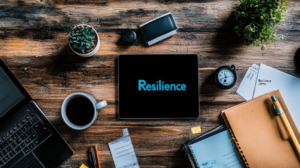Prioritising safety and health isn’t just a regulatory requirement but a moral imperative. As someone who has navigated the complexities of workplace safety for years, I firmly believe that obtaining the right certifications can elevate your career and safety standards across industries. Whether you’re just starting or looking to advance in your profession, investing in these essential safety and health certification programs can make a substantial difference in your expertise and your organisation’s commitment to safety.
Construction NVQ is essential for professionals in the construction industry as it provides a structured framework to validate practical skills and knowledge. This certification enhances credibility and ensures compliance with industry standards and regulations. Thus, it equips individuals with the necessary expertise to navigate complex construction environments, prioritise safety, and deliver high-quality workmanship, ultimately benefiting their employers and clients.
Now, let’s explore other must-have certification programs professionals should consider pursuing to enhance their knowledge, skills, and impact in ensuring a safe and healthy workplace environment.
1. OSHA 30-Hour Construction Certification
For professionals in the construction industry, the OSHA 30-Hour Construction Certification is indispensable. Offered by the Occupational Safety and Health Administration (OSHA), this program covers a comprehensive range of topics, including hazard recognition, fall protection, electrical safety, and more. It equips individuals with the knowledge to identify, avoid, and mitigate potential hazards on construction sites, thereby enhancing safety standards across projects.
2. Certified Safety Professional (CSP)
The Certified Safety Professional (CSP) credential suits safety professionals across various industries. Administered by the Board of Certified Safety Professionals (BCSP), this certification demonstrates expertise in safety management, risk assessment, and regulatory compliance. Holding a CSP designation validates your skills and positions you as a leader capable of implementing and overseeing robust safety protocols within organisations.
3. Certified Industrial Hygienist (CIH)
Focused on health hazards in the workplace, the Certified Industrial Hygienist (CIH) certification is crucial for professionals dealing with occupational health risks such as chemical exposures, noise levels, and air quality. Issued by the American Board of Industrial Hygiene (ABIH), CIH holders are trained to assess workplace environments, recommend controls, and ensure compliance with health regulations to protect workers from potential illnesses and injuries.
4. Certified Health and Safety Manager (CHSM)
The Certified Health and Safety Manager (CHSM) designation emphasizes a holistic workplace safety and health management approach. Offered by organisations like the National Association of Safety Professionals (NASP), this certification covers topics ranging from emergency planning to ergonomics, preparing professionals to effectively manage safety programs and promote a culture of health and well-being within their organisations.
5. Certified Ergonomics Assessment Specialist (CEAS)
With the rise of musculoskeletal disorders in many industries, the Certified Ergonomics Assessment Specialist (CEAS) certification is becoming increasingly valuable. This program equips professionals with the skills to evaluate workplace ergonomic risks, design solutions, and educate employees on proper ergonomic practices. It’s particularly beneficial for professionals involved in office ergonomics, manufacturing setups, and healthcare environments.
6. Certified Hazardous Materials Manager (CHMM)
Professionals responsible for handling hazardous materials benefit greatly from the Certified Hazardous Materials Manager (CHMM) certification. Managed by the Institute of Hazardous Materials Management (IHMM), this credential signifies expertise in managing hazardous substances, ensuring compliance with environmental regulations, and implementing safe handling practices to minimise risks to human health and the environment.
Based on my experience, investing in certifications demonstrates a commitment to safety and enhances career opportunities by showcasing a proactive approach to workplace health and safety management. As organisations continue to prioritise safety as a core value, certified professionals play a critical role in driving positive change and fostering a safer work environment for everyone involved.





